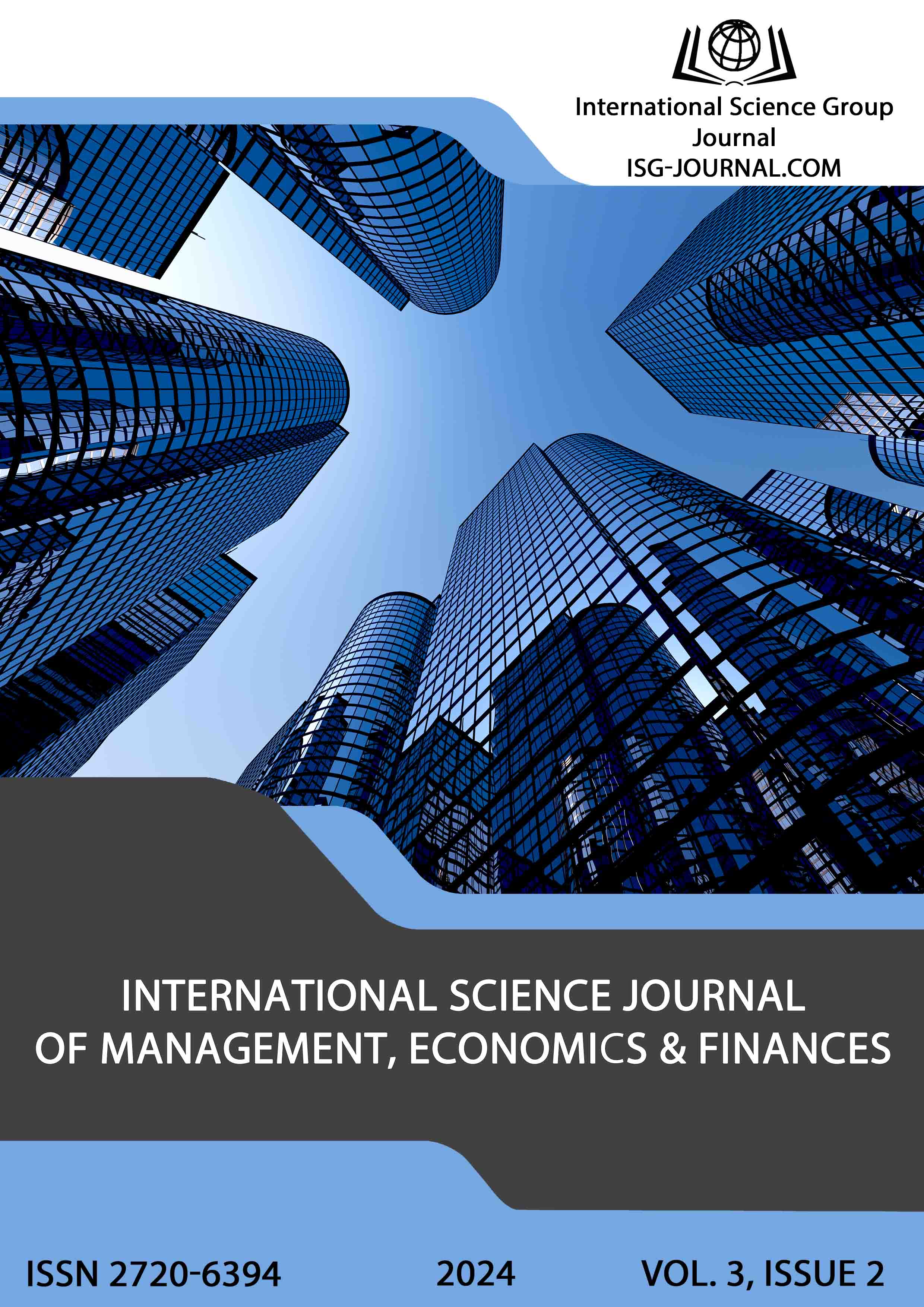Digital accessibility in the formation of a barrier-free environment in tourism
DOI:
https://doi.org/10.46299/j.isjmef.20240302.05Keywords:
tourism, digital accessibility, barriers, barrier-free, accessibility, disability, barrier-free environmentAbstract
The article discusses the issues of invoking digital accessibility on the basis of IT technologies, using elements of artificial intelligence, to create the concept of a barrier-free environment in tourism for people with disabilities as a concept for the development of an inclusive society. It has been determined that one of the key factors influencing tourism in recent years has been globalization, digitalization, and sustainability. The ease of mobility, increased awareness of new destinations and the Internet as a source of information and trade in tourism product and service have led to the exponential growth of this market. However, along with this growth, there are changes in the needs of society. The increasing use of mobile devices in travel, the introduction of new technologies, the ever-increasing level of digital accessibility for the development of a barrier-free society and the less noticeable difference between business travel, leisure travel, medical, recreational, rehabilitation and other types of travel are all examples of changing consumer interests in the world. The steady increase in the number of people with disabilities affects the emphasis on the development of a barrier-free tourism environment as one of the priority areas for the development of a humanistic society. Digital accessibility as an element of a barrier-free environment is an important (key) element of disability inclusion, which will allow people with disabilities to live independently and fully and participate in all aspects of society. An accessible barrier-free environment is an important step towards realizing the rights of people with disabilities to participate in all spheres of community life. As digital accessibility increasingly permeates all aspects of life and shapes society, it becomes imperative to ensure that these transformational changes occur in a sustainable manner and encompass different industries. In the end, the choice we make in the field of digital accessibility can be a catalyst for positive changes in the formation of a barrier-free environment in tourism.References
United Nations Enable. Відділ економічних та соціальних питань. Інвалідність. Сприяння доступному туризму для всіх. https://www.un.org/development/desa/disabilities/issues/promoting-accessible-tourism-for-all.html
Державні сайти України. Міністерство з питань реінтеграції тимчасово окупованих територій України. https://minre.gov.ua/2023/09/22/v-ukrayini-nalichuyetsya-3-miljony-lyudej-z-invalidnistyu/ (дата звернення 15.01.2024)
Безбарєрний туризм в умовах сьогодення: глобальні виклики для України та світу. https://hellper.com.ua/product/tezi-bezbaryernij-turizm-v-umovax-sogodennya-globalni-vikliki-dlya-ukra%D1%97ni-ta-svitu/ (дата звернення 21.02.2024)
General Assembly - Twentieth session 24 Aug 2013. https://www.unwto.org/archive/global/event/general-assembly-twentieth-session
Simon Darcy, Tracey J. Dickson (2009). Journal of Hospitality and Tourism Management, Volume 16, Issue 1, 01 January 2009. pp. 32 - 44 DOI: https://doi.org/10.1375/jhtm.16.1.32
Golovkova, L., Yukhnovska, Y., & Ryzhenko, O. (2023). The development of ecological (green) and rural tourism for the disabled people in Ukraine. Journal of Geology, Geography and Geoecology, 32(1), 26-35. https://doi.org/https://doi.org/10.15421/112303
Хрущ Ю.М., Іванова В.М., Медведський Р.С. (2017). Туризм для інвалідів: сучасні підходи до визначення поняття. URL: file:///C:/Users/Administrator/Downloads/34-%D0%A2%D0%B5%D0%BA%D1%81%D1%82%20%D1%81%D1%82%D0%B0%D1%82%D1%82%D1%96-226-1-10-20190403.pdf
Кочубей, Т. (2021). Загальні засади створення безбар’єрного середовища для людей з інвалідністю. Social Work and Education, Vol. 8, No. 2. pp. 204-214. DOI: 10.25128/2520- 6230.21.2.6. URL: file:///C:/Users/Administrator/Downloads/236611-Article%20Text-544744-1-10-20210722.pdf
Шевелюк, М.М. (2021). Цифровізація у сфері туризму: інноваційні тренди і пріоритетні напрями розвитку. Питання культурології, (38), 226-235. doi: https://doi.org/10.31866/2410-1311.38.2021.245956
Кравченко А.В., Бойко В.В. (2021). Цифровізація туристичної галузі в пост - covid-19 період. URL: http://www.economy.nayka.com.ua/pdf/2_2021/98.pdf
Морохович В.С., Кашка М.Ю., Талапа С.Ю. (2021). Технологічні драйвери розвитку ринку туристичних послуг. URL: http://journals-lute.lviv.ua/index.php/visnyk-econom/article/view/1033/978
Адамовська, М., & Зубко, Т. (2021). Туризм в епоху digital-комунікацій. Вісник Київського національного університету культури і мистецтв. Серія: Туризм, 4(1), 30–39. URL: https://doi.org/10.31866/2616-7603.4.1.2021.235145
Оксана Жолнович міністерка соціальної політики. Всеукраїнський центр комплексної реабілітації для осіб з інвалідністю. URL: https://life.pravda.com.ua/society/2023/09/19/256633/
Statista.com. URL: https://www.statista.com/statistics/233223/travel-and-tourism-total-economic-contribution-worldwide/
Цвілий, С. М., & Бублей, Г. А. (2019). Діджиталізація бізнес-процесів компаній з надання міжнародних туристичних послуг. International relations, part “Economic sciences”, 1(20).
Чернега O., Ткаченко T., Гладкий O., Білик, В., & Лосицька T. (2022). Цифровізація як інструмент формування репутації туристичної дистинації. Financial and Credit Activity Problems of Theory and Practice, 1(42), 371–383. https://doi.org/10.55643/fcaptp.1.42.2022.3649
Downloads
Published
How to Cite
Issue
Section
License
Copyright (c) 2024 Hanna Omelchak

This work is licensed under a Creative Commons Attribution 4.0 International License.






